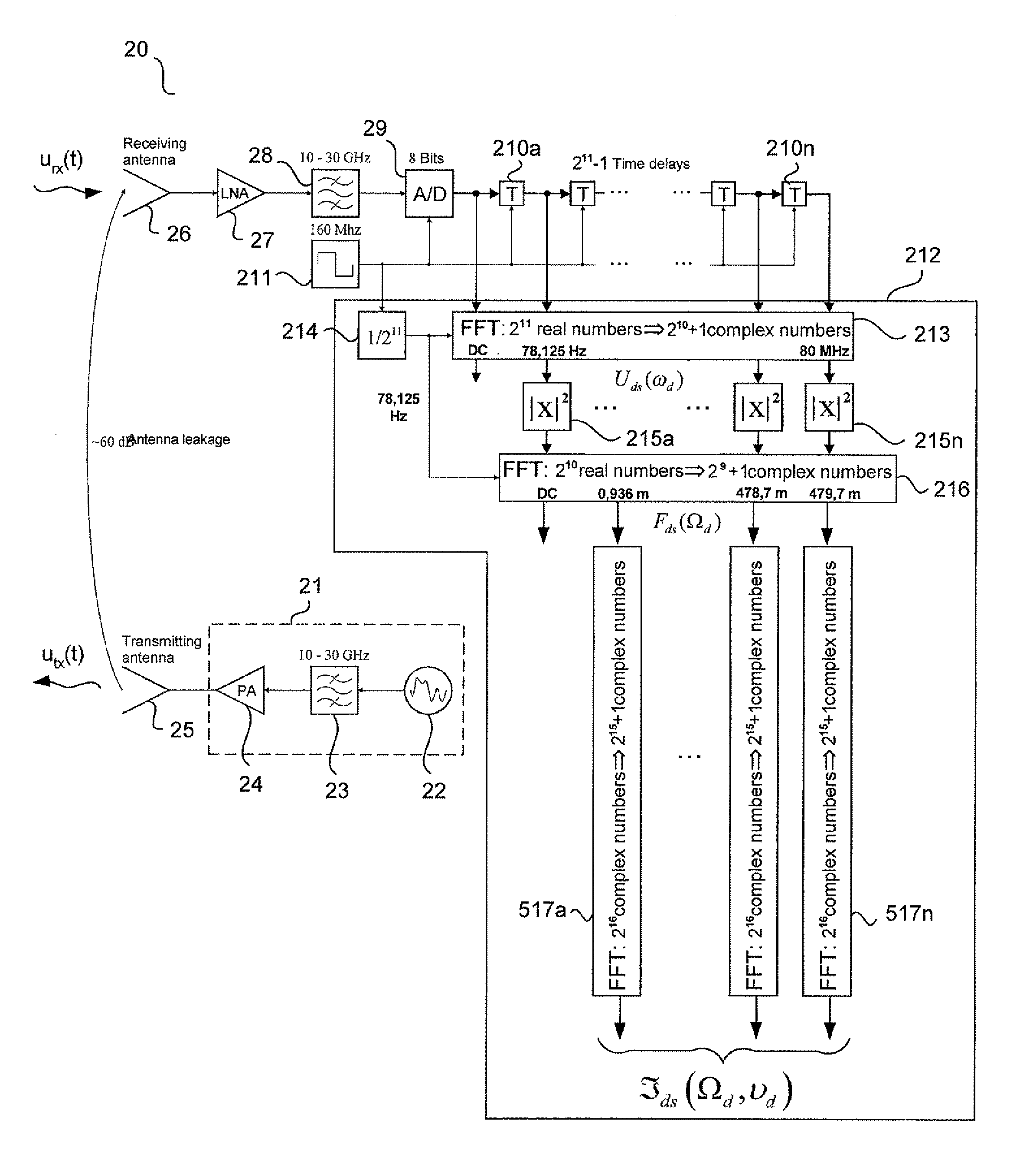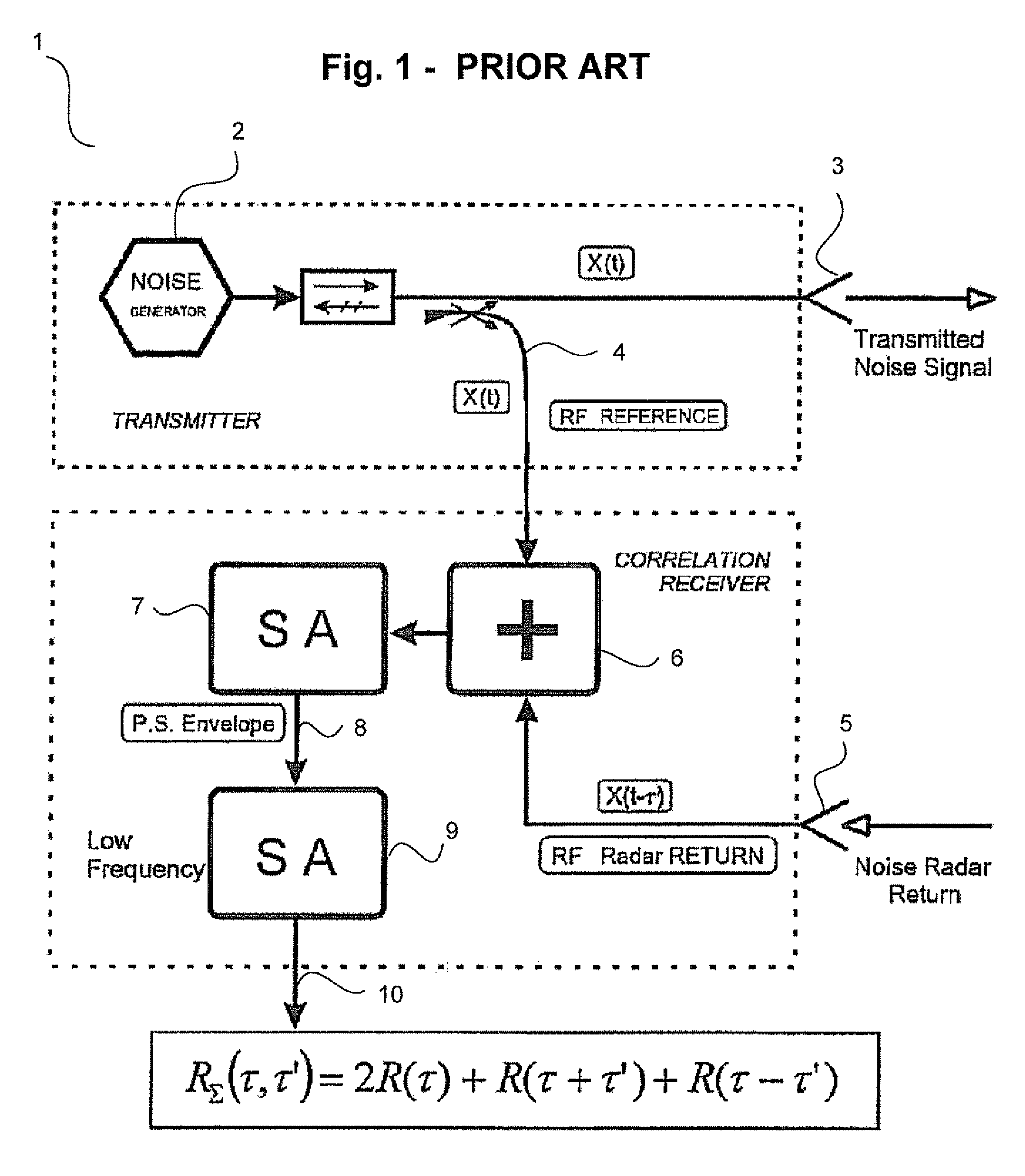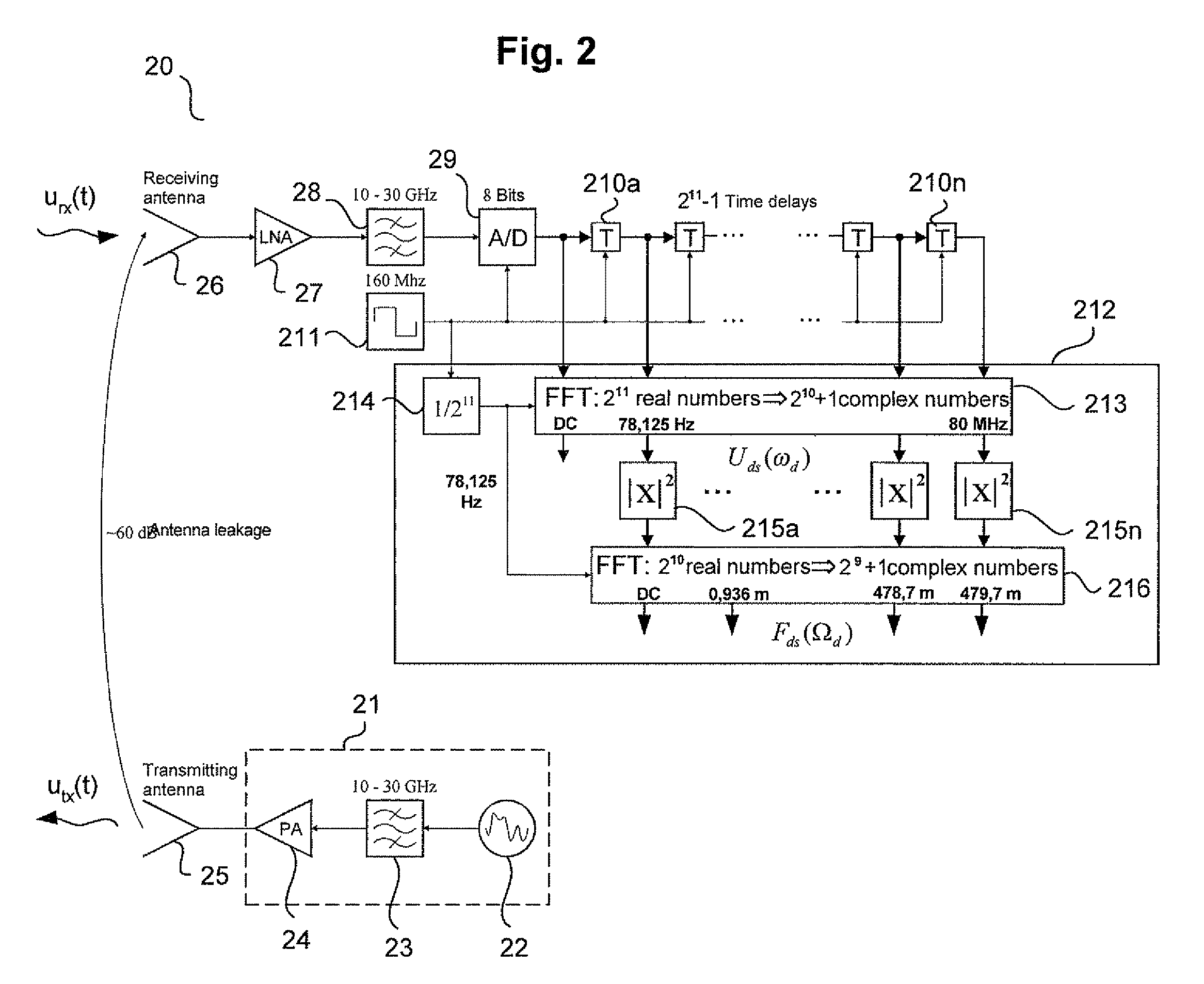Radar receiver and a method for processing radar returns
a radar receiver and receiver technology, applied in the field of radar processing systems, can solve the problems of limited availability and cost of suitable electronic components capable of handling high computational loads, and the research on radar processing systems using arbitrary waveforms has shown very little progress, so as to achieve less computational load, less computationally heavy processing, and the effect of large bandwidth of radiated arbitrary waveforms
- Summary
- Abstract
- Description
- Claims
- Application Information
AI Technical Summary
Benefits of technology
Problems solved by technology
Method used
Image
Examples
Embodiment Construction
FIG. 1 is a block diagram of analogue noise radar processing using double spectral processing according to prior art. The analogue noise radar processing is described in “The principals of noise radar technology”, The first International Workshop on the Noise Radar Technology, NRTW 2002 Proceedings, pp. 13-22, 18-20 September, Yalta, Crimea, Ukraine.
A continuous noise waveform is generated in the analogue noise radar 1 by the noise generator 2 and is radiated by the transmit antenna 3, while the waveform taken via directional coupler 4 serves as a reference.
The radar returns received by the receiving antenna 5 and the reference are summed first at the summer 6 and after that the spectrum of the total waveform is passed into a first spectrum analyzer 7. If the round trip propagation time τ=2R / c of the waveform is much longer of its correlation decay time, τc, the power spectral density will get a periodic modulation with a frequency period inversely proportional to the doubled distan...
PUM
 Login to View More
Login to View More Abstract
Description
Claims
Application Information
 Login to View More
Login to View More - R&D
- Intellectual Property
- Life Sciences
- Materials
- Tech Scout
- Unparalleled Data Quality
- Higher Quality Content
- 60% Fewer Hallucinations
Browse by: Latest US Patents, China's latest patents, Technical Efficacy Thesaurus, Application Domain, Technology Topic, Popular Technical Reports.
© 2025 PatSnap. All rights reserved.Legal|Privacy policy|Modern Slavery Act Transparency Statement|Sitemap|About US| Contact US: help@patsnap.com



